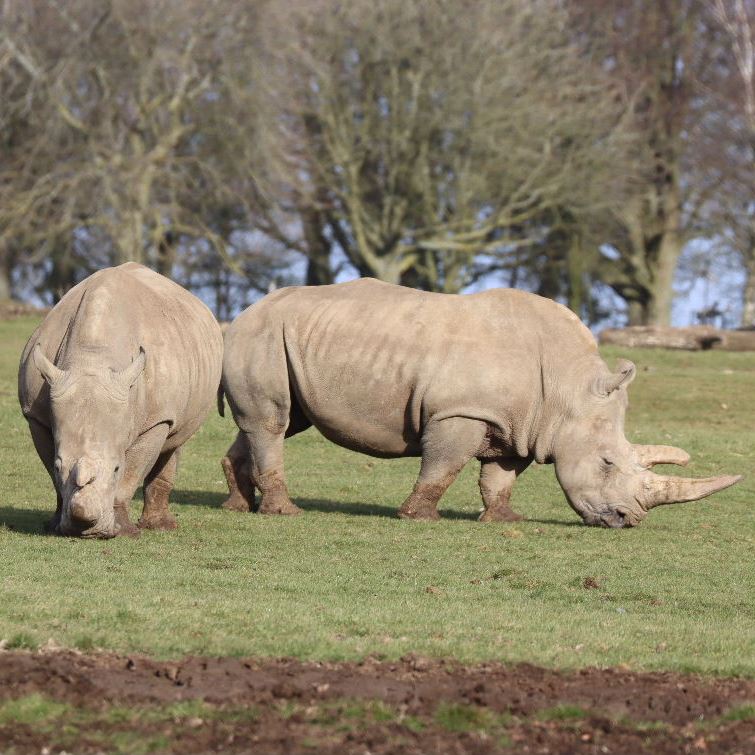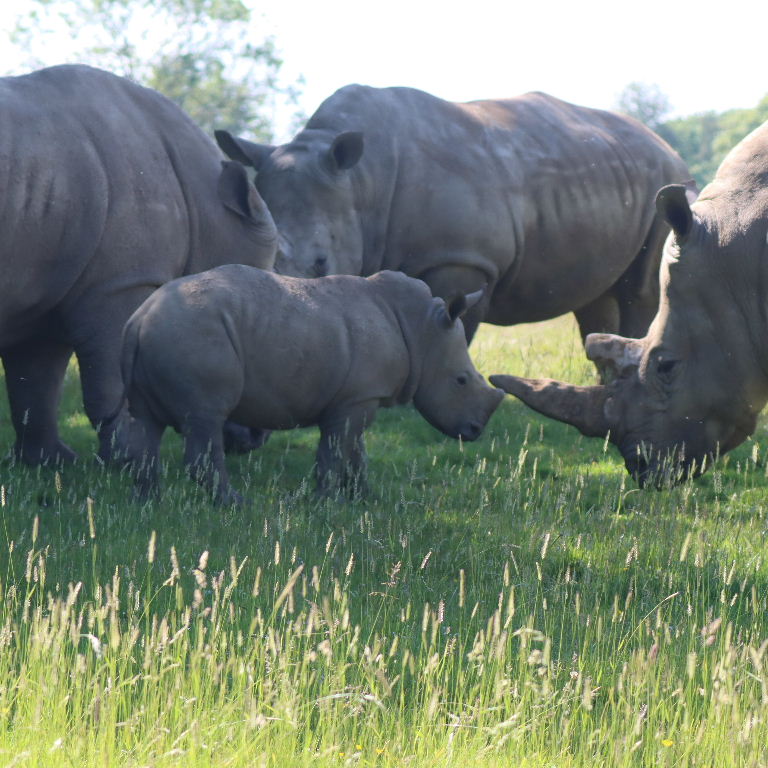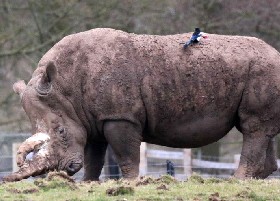White Rhinoceros (Rhino) Ceratotherium simum


The pre-historic-looking White Rhinoceros (Rhino) is native to the plains of southern Africa.
It was previously also native to central and eastern Africa.



It has a wide mouth for feeding on grass (unlike the similarly-coloured Black Rhino, which has a mouth which narrows
to a point for feeding on foliage). The name "white" is said to be derived from the Dutch/Afrikaans for "wide".
It is sometimes called the Square-lipped to differentiate from the "Hook-lipped" or "Black" Rhino.



An adult is some 6 feet tall at the shoulder. Male and female are of similar appearance but males are heavier.



The Southern White Rhino (C. s. simum) is shown here.
The Northern White Rhino subspecies (C. s. cottoni), which some say should be a full
separate species, from central and Eastern Africa is believed to be extinct in the wild.
Poachers reduced them from 500 to 15 in the 1970s/80s. At the turn of the millenium only 4 remained, but, after extensive searches, it is
now believed to be extinct. Moreover, at the time of writing, only 2 females remain in captivity. The last male on earth died in Kenya in 2018.



The White and the Black Rhinos, both grey-coloured, have two horns.
All rhino populations have been and continue to be decimated by hunting and poaching for their horns.
 Adult and calf.
Adult and calf.
 Baby rhino calf.
Baby rhino calf.
 Baby calf with family.
Baby calf with family.




